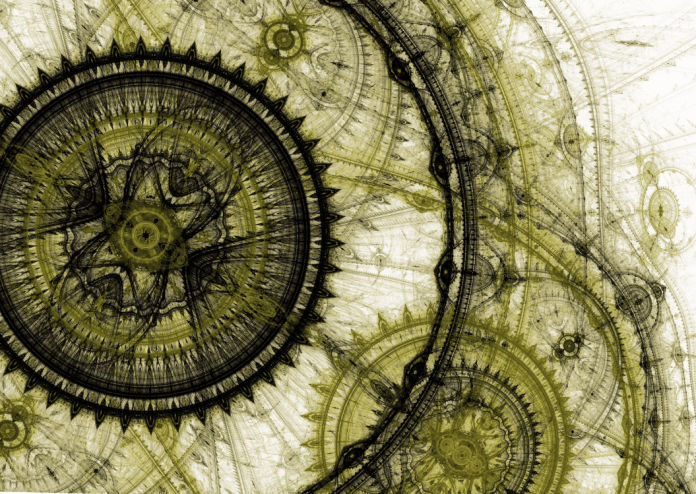Imagine walking into a library where every thought, choice, and lifetime—past, present, and future—is carefully recorded. The Akashic Records are often described as this cosmic archive, a vibrational database that psychics, mystics, and seekers tap into for guidance. Learning to read them isn’t just a spiritual exercise; it’s a way of understanding why certain patterns repeat, what your soul is here to learn, and how you can shape your destiny.
What Are the Akashic Records?
Psychics explain the Records as an energetic field that holds the blueprint of every soul’s journey. “Akasha” is a Sanskrit word meaning “ether” or “sky,” hinting at a universal space where memories and possibilities exist. You could think of it as the universe’s “cloud storage,” except it’s woven into the fabric of consciousness itself.
Why People Seek the Akashic Records
Life clarity: Understand why certain struggles or blessings keep appearing.
Past life healing: Discover karmic ties influencing your present.
Relationship insight: See soul contracts and deeper reasons behind connections.
Spiritual growth: Receive guidance from higher dimensions.
Creative blocks: Many artists and writers use the Records to reignite inspiration.
One psychic described a client who constantly sabotaged relationships. Reading her Akashic Records revealed a pattern of abandonment carried over from a past life. With this awareness, she was able to break the cycle and attract healthy love.
Preparing Yourself to Access the Records
The Records are not something you “hack.” They open when approached with reverence. Preparation matters:
Set intention. Be clear on why you’re entering—curiosity is fine, but healing or guidance is stronger.
Calm the mind. Meditation, breathwork, or prayer helps shift from mental chatter to spiritual frequency.
Ground yourself. Just as Wi-Fi needs a stable signal, your energy needs stability to connect.
Ask permission. Ethical readers always request access—never assume you can peek into someone else’s soul without consent.
Methods to Read the Akashic Records
The Pathway Prayer
Many practitioners use specific prayers (like the Pathway Prayer) that act as keys to open the Records. Spoken aloud, they attune your consciousness to the vibrational field.
Meditation Journeys
Deep meditation with guided visualizations—imagine entering a vast library or temple—can align you with the Records.
Psychic Channeling
Clairvoyant psychics often describe the Records as streams of images, symbols, or voices of guides. Each psychic’s experience varies.
Writing Practices
Some readers enter the Records, then free-write answers to their questions. Often the wisdom flows faster than the conscious mind could create.
Symbolic Tools
Crystals like selenite or lapis lazuli, combined with candlelight or sound bowls, can help raise vibration before opening the Records.
Questions to Ask in the Akashic Records
What past life influences affect me now?
What is my soul’s purpose in this lifetime?
What limiting beliefs should I release?
How can I heal a specific relationship?
What talents or gifts am I meant to develop?
Real Experiences from the Records
The lost healer: A woman with constant back pain discovered in her Records that she had been a healer in past lives who carried others’ burdens. A shift in perspective released her pain.
The reluctant artist: A man blocked creatively learned he had silenced his artistic side across multiple lifetimes to fit societal roles. Once he acknowledged it, he began painting again after 20 years.
The dreamer’s validation: A client who dreamed of temples and ancient languages found the same imagery when entering the Records—proof her soul had walked there before.
Common Misconceptions About the Records
It’s fortune-telling. The Records don’t hand you a script; they show possibilities, not fixed outcomes.
Only psychics can access them. Anyone can learn with practice and respect.
They replace free will. No record overrides your choices. Guidance is offered; action is yours.
The Role of Psychics in Akashic Work
While self-access is possible, psychics bring years of experience and higher attunement. They help interpret symbolic messages and filter out ego-based noise. Think of them as trained librarians who know how to navigate the vast archive without getting lost.
Final Thoughts: The Records as a Compass, Not a Cage
Reading the Akashic Records isn’t about discovering an unavoidable fate—it’s about seeing the patterns that guide your growth. Psychics say the greatest gift of the Records is reassurance: your life is not random, your struggles have meaning, and your soul is wiser than you realize. With each reading, you step closer to living not just consciously, but cosmically aligned.
Akashic Records FAQ
1. What are the Akashic Records?
They’re an energetic archive containing every soul’s past, present, and potential futures.
2. Who can access the Akashic Records?
Anyone can learn to access them with practice, though psychics often navigate them more easily.
3. Do I need to be psychic to read the Akashic Records?
No. Meditation, prayer, and intention are enough for beginners.
4. How do psychics access the Akashic Records?
They use tools like meditation, the Pathway Prayer, or clairvoyant channeling.
5. Are the Records a form of fortune-telling?
No. They reveal patterns and possibilities, but free will shapes outcomes.
6. What’s the best way to prepare before opening the Records?
Ground yourself, set clear intention, and quiet the mind with meditation.
7. Can I access someone else’s Records?
Only with their permission. Ethical readers never peek without consent.
8. What happens if I read my Records incorrectly?
Misinterpretation is possible, but practice and guidance improve clarity.
9. Can Akashic Records predict love or soulmates?
They can reveal soul contracts, past life bonds, and relationship patterns.
10. Are Akashic Records tied to religion?
No. They’re spiritual in nature but not confined to any religion.
11. Do the Records look like a real library?
Some see them as libraries, others as streams of light, voices, or symbols.
12. What questions should I ask in the Records?
Ask about soul purpose, past life patterns, healing, and next steps.
13. Can I use crystals to access the Records?
Yes. Crystals like selenite, amethyst, and lapis lazuli help raise vibration.
14. How long does it take to access the Records?
Beginners may need weeks or months of practice; some psychics connect instantly.
15. Can trauma appear in the Records?
Yes. Past and present traumas often surface for healing and release.
16. Do the Records contain future events?
They show potential timelines, but free will can change the outcome.
17. Can children’s Records be accessed?
Yes, but only with parental permission and for supportive purposes.
18. What’s the difference between Akashic Records and past life regression?
Regression re-experiences lives; Akashic Records reveal a higher overview.
19. Can dreams connect me to the Records?
Yes. Many people spontaneously access them during vivid dreams.
20. Are the Akashic Records safe to read?
Yes, if approached with respect, grounding, and protection.
21. Do the Records have guardians?
Many readers sense guides or “keepers” who manage access.
22. Can I heal through the Records?
Yes. Awareness of past patterns often releases emotional or spiritual blocks.
23. Are the Records real or symbolic?
Psychics see them as real energetic structures, though experiences vary.
24. Can I record or write down what I see?
Yes. Journaling is encouraged to capture insights for reflection.
25. What’s the Pathway Prayer?
A spoken prayer that helps align your consciousness to the Records.
26. Do Akashic Records readings cost money?
Professional readings may, but self-access is always free.
27. How often should I consult the Records?
As needed—some monthly, others only for major life decisions.
28. Can science prove the Akashic Records exist?
Not yet, though some link them to quantum memory fields.
29. Are Akashic Records the same as clairvoyance?
Not exactly. Clairvoyance is a psychic sense; Records are an energetic library.
30. What’s the biggest benefit of reading the Akashic Records?
Clarity—understanding your soul’s purpose and patterns so you can grow consciously.





This article provides a fascinating exploration into the Akashic records. I appreciate the detailed steps on how to access these profound spiritual archives. The emphasis on grounding and asking for guidance resonates deeply with me, as these practices mirror those in many other spiritual traditions. It’s reassuring to know that these records can offer healing and insights without the burden of negativity. A well-rounded guide for anyone looking to delve into their own spiritual journey with clarity and purpose.
The process of accessing Akashic records appears to be structured and ritualistic, which might help individuals in grounding themselves and focusing on their inner selves.
The concept of Akashic records as a metaphysical library of your soul’s history is fascinating. It seems to blend spiritual practices with a form of introspection and self-discovery.
I find the idea that Akashic records can help release negative thoughts and emotions quite appealing. The emphasis on healing and self-growth is noteworthy.
Indeed, the therapeutic aspect of Akashic records could be beneficial for many people looking for holistic and spiritual ways to enhance their well-being.
The mention of involving Archangel Michael and asking for protection and guidance adds an extra layer of spirituality to the practice.
It suggests a blend of different spiritual traditions, which could make the practice more accessible to people with various backgrounds.
True, incorporating elements like meditation and guided prayers could make the practice more inclusive and comprehensive.
The instructions for reading and closing the Akashic records are very specific. It’s interesting to see such a detailed method for accessing spiritual insights.
The concept of Akashic records, rooted in the Sanskrit term ‘Akasha’ meaning ‘sky,’ is indeed a fascinating one, often paralleled with the notion of a cosmic library. It’s intriguing how these records are said to encompass all facets of one’s soul, including emotions, thoughts, and intentions. The methodology outlined for accessing these records underscores a blend of spiritual practices like grounding, invoking Archangel Michael, and seeking guidance from one’s spiritual guides, which aligns well with many metaphysical traditions. It’s important to note the emphasis on approaching these records with a sense of maturity and purpose, particularly the advice against accessing them if under the age of 18, highlighting the need for a certain level of psychological preparedness. Overall, the article offers a comprehensive guide on engaging with the Akashic records in a responsible and meaningful way.